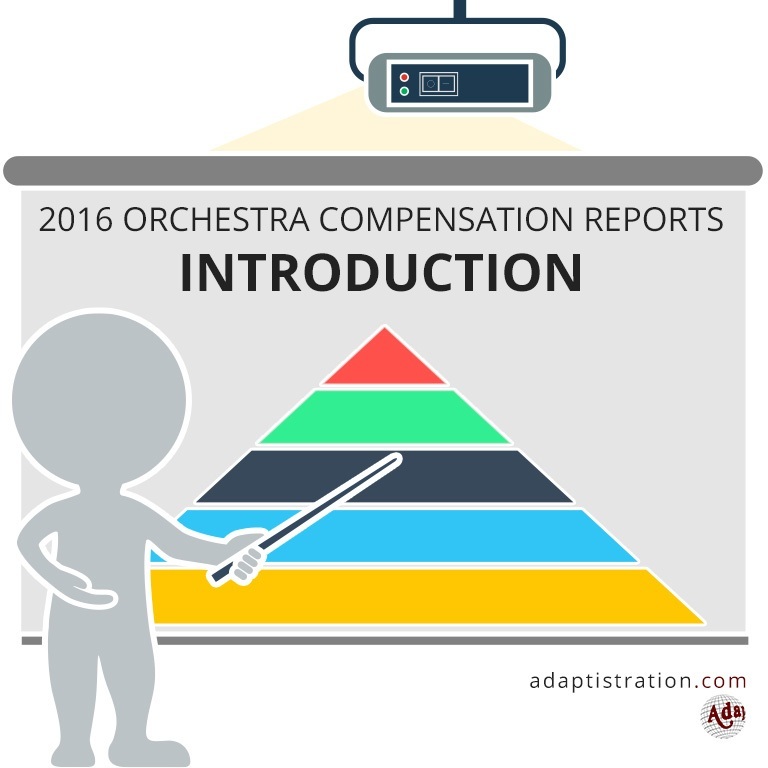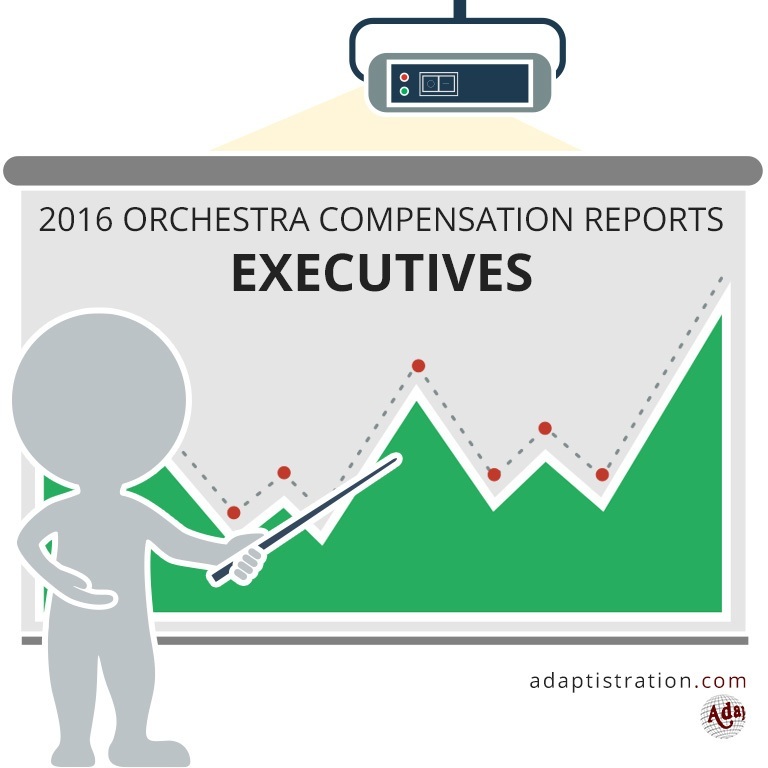To continue where we left off in yesterday’s article, the following chart lists the 2001 annual salaries(excluding benefits, etc.) for executive directors and base musicians for 44 ICSOM ensembles.
Sorry, but this chart is no longer available.
According to these figures, an average orchestra executive director earns approximately 325% more than a musician making base salary. Now here’s where the data becomes interesting, since these figures represent totals from 2001, they don’t accurately characterize the impact of 9/11 and the softening economy on the financial health of these organizations. I know that the musicians in at least 24 of these orchestras have accepted pay cuts which lower the base musician salary to approximately $52,047, or -4%, by the end of the 2003-2004 season. Additionally, at least 21 of these orchestras have either replaced their executive directors or are in the process of replacing them by the end of the 2003-2004 season.
Do you think the average executive director salary has gone up or down? Since obtaining current IRS 990 forms for 2003 is next to impossible and orchestras don’t make a habit of releasing how much their chief executives earn, I can only guess. I went into detail about my speculations in an earlier piece from February entitled The Executive Shuffle. Unfortunately, I suspect to find that even though American orchestral artistic quality is at an all time high while at the same time their financial conditions are at an all time low, it’s the musicians (and undoubtedly lower level administrative staffers) who are making the greatest economic sacrifices while the highest level of executives are actually reaping economic reward. Isn’t this the opposite of what should be happening?
Does that mean good executives aren’t worth their weight in gold? Of course not. But by which standards do we measure what makes an executive good or bad? I talked to long time orchestra musician that has lived through two orchestra’s collapsing, a multi month strike over a labor disagreement, and who is actively involved with their orchestra’s player committee. When I asked her that question she said:
“I want an executive who can ensure that I don’t have to worry about the organization, if they can really do that then I don’t care how much they get paid. I want to see them out in the community working for the orchestra and not their own self interests and I want to see the board of directors hold them accountable if they aren’t doing those things. I want to see my executive director stop fighting with the players and give us the information we need which will let us stop thinking that everything they say is a potential lie.”
In the late 1990’s you could reasonably say that many of the same executives today were fantastic because their organizations were in the black and they were receiving large amounts of unearned revenue through endowment and contributed income. But we now know that many of these same individuals were spending it as fast (if not faster) than it was coming in. Once the economy took a down turn, those funds dried up and orchestras have been left with gaping shortfalls in their budgets. What that shows us is that many of these executives were merely in the right place at the right time, otherwise known as dumb luck.
In the end it’s the ensemble and therefore, the community that suffer. Creating a way to better judge an executive’s value is going to be a necessity for orchestras of tomorrow to reach their full potential. This is a topic we’ll be returning to in detail over the next several weeks; but in the meantime, write in with your opinions. Don’t forget to come back tomorrow where we’ll continue this discussion and list additional information about executive director salaries compared to the base musician salaries from the top ROPA orchestras.


